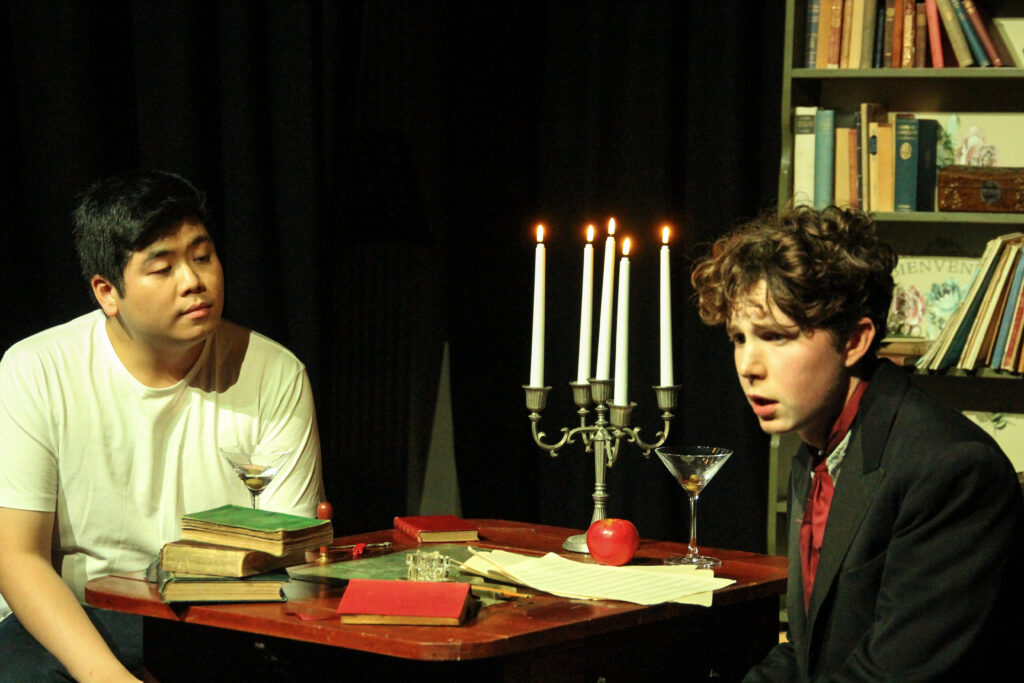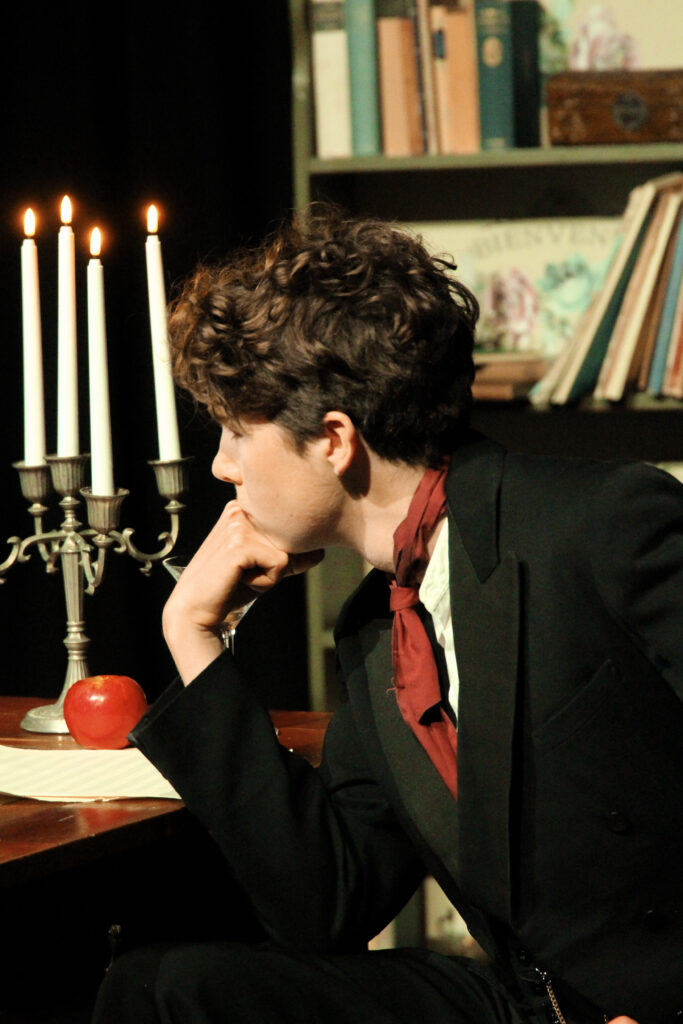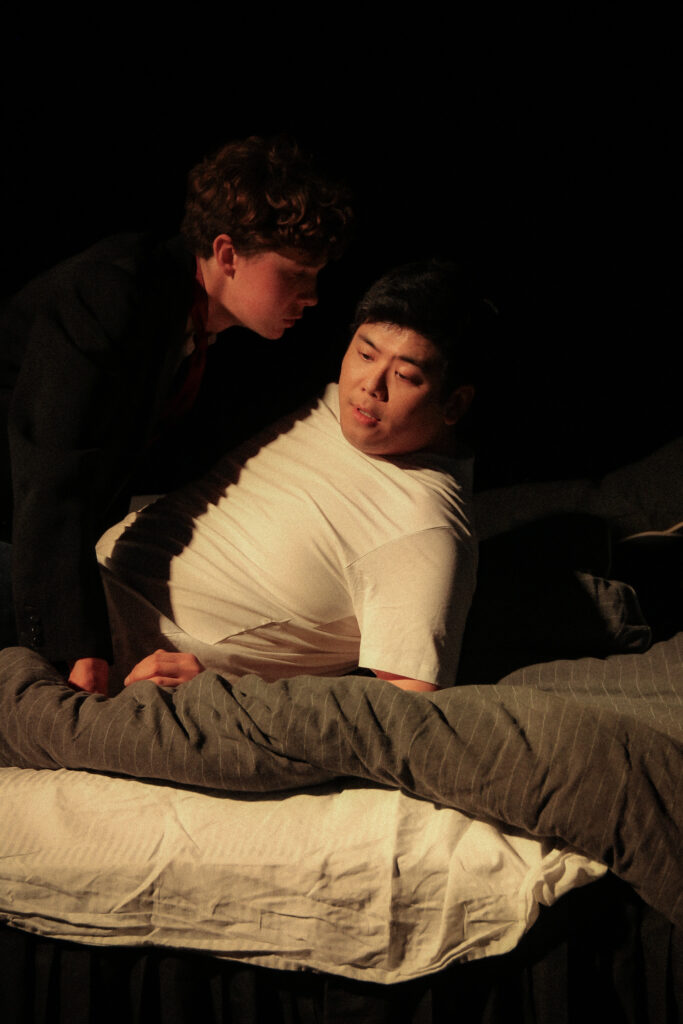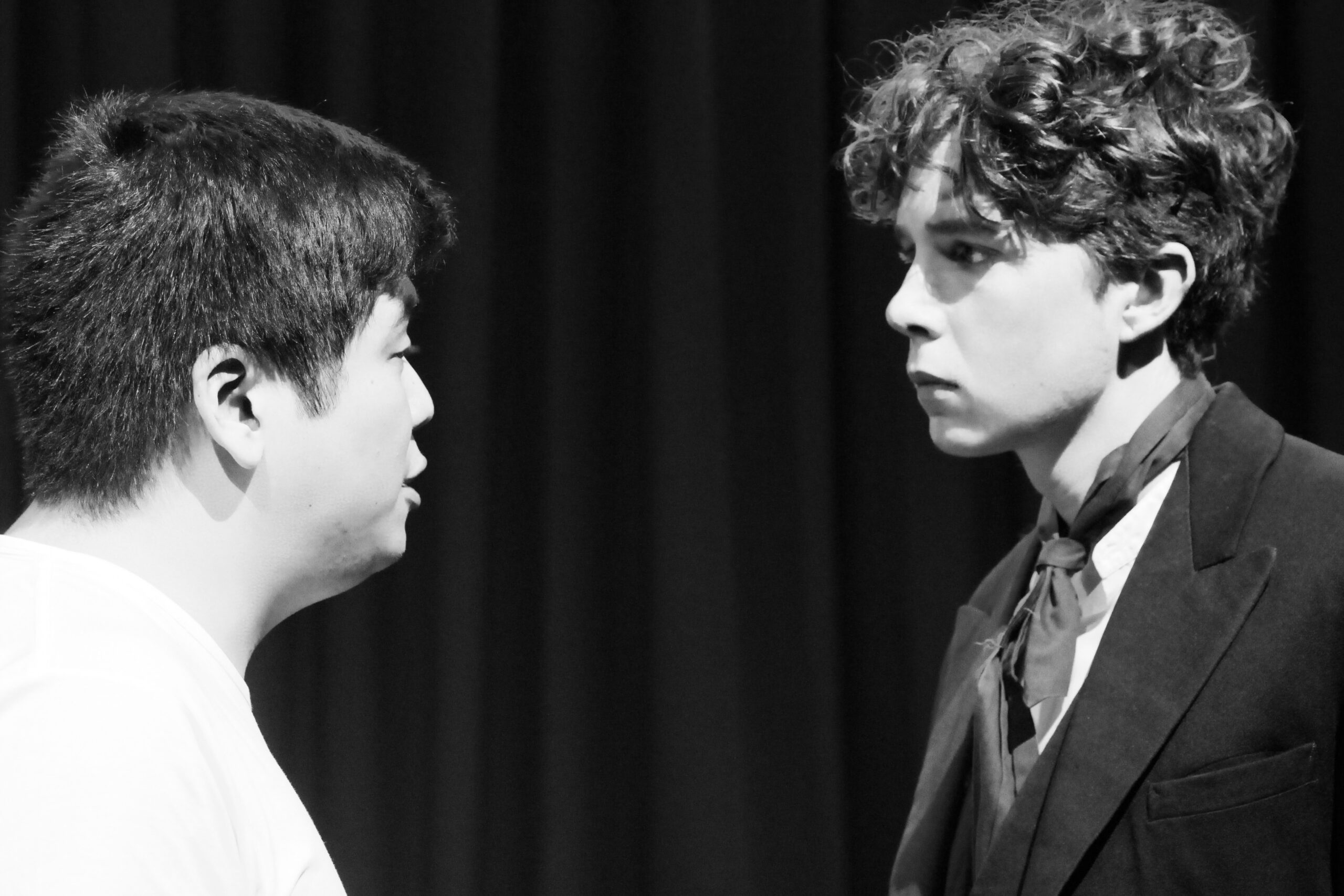He was a man named Hector. So was the other man, Hector. There’s a messy bed on the stage and a table and candlelight. And Cadence Chung is singing and it’s the first time I’ve been to this room in BATS and I’m writing in my notebook in the dark—‘plays are like ASMR’. To me, this is revelatory because I never go to plays.
The thing to know about Hector is there are two of them. No. There are actually three: dead white man composer Hector Berlioz (Hector B from here on out), and Chinese Wellingtonian, fish and chip shop kid, ever-questioning, outsider Hector Wong (Hector W). The third Hector is ‘Hector, Prince of Troy’, Greek Mythology Hector, the great warrior who is slain by Achilles—“such an awkward moment,” in the words of Hector W.

It feels fitting that there are three Hectors, because while the play is structured around dialogue between Hector B and Hector W, there’s a haunted feeling throughout. The discussions and questions between the two characters are generative, building tension and at times, releasing it in moments of humorous relief, but the generation is also a kind of absence. There is a third thing that both Hectors are speaking through, or to, or at. It’s an interesting prompt and a central thread of the play—the question of how tied we are to our histories and our contexts, the identities society has placed upon us and the places we come from. Which, ultimately, can be reduced on an interpersonal level to: when I’m talking to you what exists between us? Or, as Hector B says to Hector W at the end of the play, “You can’t tell me that, after all this, that you didn’t get it.”
We could take Trojan Hector, if we liked, and use him as a symbol. He represents a kind of mythic absence in the lives of both Hector B and Hector W, who are melancholic, emotionally charged, and dramatic in their own ways. Both have moments of striking sincerity, Hector W, in particular, has a searching angst so recognisable in younger people who have grown up with an awareness of inequality and a refusal to take things for granted. Masculinity, destiny, heroism. These are all themes the play interrogates skillfully and provocatively, jumping effortlessly through time and space, from a battleground to a takeaway shop to two teenage boys lying drunk on a bed at a party. Through it all, we return to Hector B and Hector W, the big topics of life refracted through their eyes and their relationship to each other, something so clearly not straightforward. It’s charged, it’s erotic, it’s fraught, it’s playful.

For a short play with only two actors, there is an impressive depth of theme and character explored. Both Dennis Eir Lim (Hector W), and Lewis Thomson (Hector B) display a remarkable fluidity, switching fairly seamlessly between characters of different ages, time periods, and backgrounds. Even in stance and physicality alone, the difference in their characters are clear and telling. Hector B confidently dresses and undresses, puffs out his chest, and strides across the stage with the confidence certain men can wear so easily. Hector W is much more changeable, shy and doubtful, clumsily knocking things over but then switching to moments of anger and clarity, shoulders pushed back, delivering monologues to the audience.

To summarise the themes of this play is difficult because it spans so many. It’s ambitious and unafraid to interrogate the deep and classic themes of life: death, sexuality, heroism, failure, prejudice. But what I am most struck and impressed by, is the play’s ability to approach these themes in a contemporary way without falling into fatalism and cynicism. Of course, things are unfair and fraught and this shouldn’t be the case. However, despite all their differences, there is something so earnest and intimate about Hector B and Hector W’s relationship. They feel, at times like an old married couple. One gets the sense that when we express ourselves to one another, our fears, our doubts, or frustrations and angers, when we bring our differences to the surface and interrogate the past unflinchingly, we might actually learn something about one another. We might get a glimpse of what we have in common.
Hector is currently being staged until June 22nd at BATS Theatre in Pōneke Wellington, tickets are available from their website.
Cast and Crew
Hector Wong — Dennis Eir Lim
Hector Berlioz — Lewis Thomson
Directed by Hazel Perigo-Blackburn and Cadence Chung
Written by Cadence Chung
Sound and lighting by Kassandra Wang
Pianist — Amelia Lin
Dramaturg/stage manager — Jackson McCarthy
Produced by Hebe Productions
Featured images courtesy of Hebe Productions.



